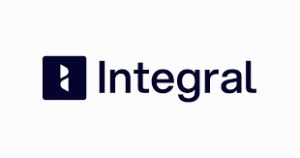Why Technology and AI Are Now Essential for Auditors

The auditing profession stands at a pivotal crossroads. Today, the question of whether auditors need to be including technology and AI in their jobs is no longer optional. Financial reporting has grown increasingly complex, regulatory scrutiny has intensified, and businesses demand faster, more precise insights into their operations. Auditors who fail to embrace digital tools risk falling behind, not only in efficiency but also in credibility and relevance.
The Rising Imperative for Technology
Auditing has long been a labour-intensive process. Traditionally, auditors relied on manual sampling of transactions, spreadsheets, and hours spent poring over ledgers. But technology is transforming the landscape. AI-powered tools can sift through millions of transactions in minutes, flag anomalies, and detect patterns invisible to the human eye. Beyond efficiency, these tools enable auditors to offer more strategic insights to clients. They shift the profession from a compliance-focused service to a value-adding advisory role.
Large firms are leading the charge. Deloitte, KPMG, PwC, and EY are all integrating AI into audit workflows. Nearly 75% of auditors at Deloitte UK now use its AI chatbot, PairD, at least monthly. Staff generated over 1.1 million prompts between April 2024 and February 2025 to summarise documents, write code, and assist with data analysis.
AuditBoard, a leading cloud-based audit and risk platform, has also become a significant player in AI-driven auditing. Its AuditBoard AI has been generally available since April 2024. It leverages generative AI and private models to automate tasks. These tasks include report summarisation, issue creation, and control mapping. It also highlights duplicate work and identifies gaps in control frameworks. More than 50% of the Fortune 500 now use AuditBoard. In May 2025, the company launched a dedicated AI governance solution. This solution helps clients manage AI risk and compliance as new regulations emerge. This shows why auditors need to include technology and AI in their jobs. Modern auditing platforms are rapidly moving toward intelligent, automated workflows.
KPMG’s global survey found that only around 10% of companies had widely adopted AI in financial reporting by mid-2024. Additionally, 72% of companies were piloting or using it selectively. Yet almost all firms expect to be using AI in financial reporting within three years. They anticipate a 99% adoption by 2027.
Enhancing Audit Quality Through AI
AI enhances audit quality by improving risk assessment, efficiency, and accuracy. Machine learning models can compare current financial statements against historical data, identify outliers, and test the consistency of accounting entries. AI does not replace judgment, it amplifies it. Audit managers can focus on critical decision-making and interpretive work while AI handles the heavy computational lifting.
Advanced analytics also provide predictive insights, enabling auditors to anticipate potential risk areas before they materialize. This proactive approach represents a fundamental shift from traditional reactive auditing methods, helping firms identify and manage risk more effectively.
Overcoming Challenges and Resistance
Despite the benefits, AI adoption in auditing faces several challenges:
- Resistance to Change: Many auditors fear job displacement or struggle with new software.
- Skills Gaps: Auditors need training in data analytics, machine learning, and algorithmic interpretation.
- Ethical Concerns: AI systems may reinforce biases or produce opaque decisions that are difficult to audit.
- Regulatory Lag: Compliance frameworks have yet to fully catch up with AI advancements. The UK’s FRC reports that major firms are not formally tracking AI’s impact on audit quality, only usage.
- Access and Cost: Smaller firms often cannot afford advanced AI tools or training programs.
- Client Readiness: Some clients are not prepared to provide the digital data required for AI-assisted audits.
These factors slow adoption, but the overall direction is clear. Auditors must embrace technology and AI to remain relevant.
Embracing Change and Upskilling
To meet these demands, firms are investing heavily in training programs, upskilling auditors in AI, machine learning, and advanced analytics. Cloud-based audit platforms now integrate automated workflows, real-time risk dashboards, and AI-assisted reporting. Audit managers guide teams in interpreting AI outputs and incorporating them into professional judgment.
Collaboration between auditors, technologists, and regulators is crucial. Only by establishing ethical standards, testing models for bias, and ensuring transparency can the profession harness AI responsibly. The question is not if auditors need to include technology and AI in their jobs. Instead, it is increasingly about how they should do so. Those who embrace AI can provide faster, more accurate, and more insightful audits, reinforcing their role as trusted advisors.
The Strategic Opportunity
Auditors who adopt technology and AI gain more than efficiency, they gain relevance. AI allows auditors to move from reactive compliance work to proactive advisory services. Insights derived from data can inform business strategy, improve risk management, and even influence corporate governance. Technology is not just a tool. It serves as a strategic differentiator for auditors. They seek to position themselves as trusted advisors in a rapidly evolving business environment.
AI-driven audits also enable better client communication. With interactive dashboards and visualizations, clients can see issues and trends in real-time, making audits more transparent and actionable. This can deepen client trust and expand advisory opportunities.
Conclusion
The integration of technology and AI is reshaping the auditing profession. The days of purely manual, sampling-driven audits are numbered. Auditors who proactively embrace AI and other technologies will enhance the quality, speed, and strategic value of their work. The market, regulators, and clients have answered the central question. That question is whether auditors need to be including technology and AI in their jobs. Adaptation, continuous learning, and responsible AI usage will define success in auditing for decades to come. Those who delay risk being sidelined in a profession increasingly driven by innovation, speed, and precision.






